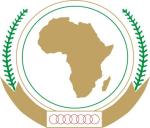From The African Weeks in Review publications, below is a list of infographics that explain the complex happenings on the continent:
Energy:
Political:
Grouping of Trans/International Organizations
ICTs and Mobile:

From The African Weeks in Review publications, below is a list of infographics that explain the complex happenings on the continent:
Energy:
Political:
Grouping of Trans/International Organizations
ICTs and Mobile:

Writing in the South African newspaper Business Day, Thami Mazwai, says that Africans must back up their demands for the West to drop their sanctions against Zimbabwe by detailing what action SADC and the African Union will do if sanctions are not dropped. Mazwai compares the West’s refusal to accept the results to Hamas’ win in Palestine and says that African leaders should unify in the same way they have ‘stood their ground’ on the matter of Omar al-Bashir’s arrest warrant from the ICC.
@im_blest Defending Mugabe is not an ideological position. It’s willful blindness to the despotism, violence & self-enrichment of his rule.
— Chris Thurman (@ChrisThurmanZA) August 21, 2013
Fortunately, this view isn’t shared by others at Business Day (above), but it does continue a pan-African narrative that dates to the liberation era which has been co-opted into a pro-dictator narrative in recents times. It builds upon the idea that Africans must unite as a whole in order to fulfill their liberation mission of removing the hold that slavery and colonialism has on the economy and society of the continent. This was an effective communicative technique in the 20th century – Africa was the underdog both before and after colonialism. The need to rally as a cohesive and stronger whole, thus forming a larger bloc of actors at the UN, as part of the Non-Aligned Movement. It also worked in defeating Apartheid South Africa.
But the issues that faced newly liberated African states in the middle of the 20th Century were much simpler than today – climate change, free trade, political development, technological innovation, and health crises don’t have moral imperatives likes slavery and colonialism. These issues are not black and white (the ones that are, such as freedom of expression challenge the domestic govt’s power so those are left to the side).
Mazwai doesn’t recognize this fact in his call to back Mugabe. Africa is not a homogenous nation – while their are theoretical linkages in the societies between similar colonial experiences, a black South African is just as likely to have more in common with a someone from Britain than from Senegal. Thus, calling for a unified bloc is hard enough but to back a tyrannical leader against punititive sanctions surely would only damage the reputation of African organizations and states further. We must not forget that repercussions still exist from Dictators’ Club of the old OAU and its refusal to condemn  human rights abuses.
human rights abuses.
However, the narrative in calling for unity behind a fellow African leader resonates for some. This only makes issues worse for Africans on the global stage because of the idea that African states will stand behind each other no matter their transgressions. This damages the moral standing and rhetorical arguments made by African leaders on other issues. If other countries view the African bloc as a unified group that will never condemn one another, Africa’s ability to negotiate and stand firm will be damaged. Similarities abound to how white colonists or slave owners stood together to prevent the end of the system that benefited them.
This is not to say Sub-Sahara Africa countries should not work together – they should. But the issues upon which to form a continental bloc are specific – not the default stance taken by African leaders. To do so would not strengthen Africa’s power in the world, it could set it back even further.